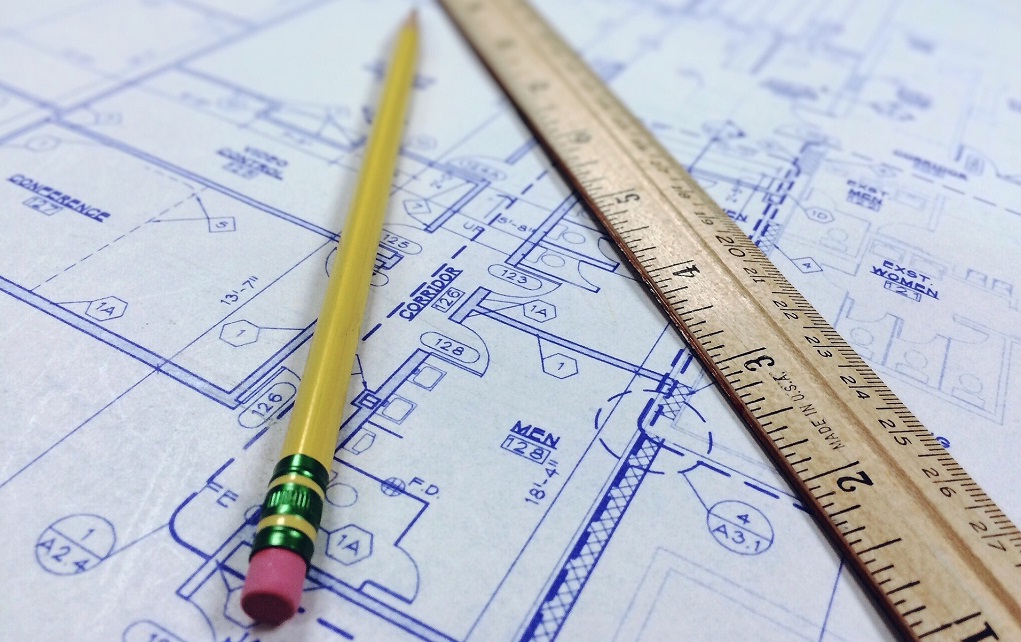
Feeling inspired after writing about this subject for my Property Success Foundation Online Training Programme, I decided to include some all-important insights into the most important aspects of refurbishing a property. Whether you are working on your own home, or are planning works on a property you intend to rent out or sell, here are some tips to help you stay ahead and make the most of your time and resources.
There are a plethora of things to take into consideration when undertaking a property project. No matter if you are just doing light works, any form of reconfiguration or a full-on 'full-gut' refurbishment, one thing is for sure; you'll need to plan well. Managing the project is of the utmost importance.
Imagine being the captain of a ship. Without a captain, there would be disarray and confusion on your vessel. Equally, without a plan of action, schedule of works and budget to work to, your property dreams could quickly turn into a nightmare!
Planning Ahead
Well ahead of starting work on a project, however large or small, you will need to devise a proper working plan so that everyone involved (especially you!), knows what is going on. This can keep you on track, on time and, most importantly, on budget.
As the saying goes, 'Failing to plan is planning to fail'. Spending time on this at the start will prove to be massively beneficial. It gives a level of certainty and clarity to what you are doing and gives confidence to the people you are working with that you know what you are doing.
What You Will Need
A Project Plan - this can be a simple document, either in the form of a Word document or Ecel spreadsheet. It is somewhere that you can draw together your ideas.
Schedule of Works - this is a more detailed version of the overall project plan and can go into as much or as little detail as you wish at this stage. The more comprehensive it is, the more you will have a grip on the time frame and costs.
Project Financials - again, a simple spreadsheet which can be used to input your daily/weekly costs whilst your project is going ahead.
Building Regulation Requirements - make sure you know what is covered by Building Regulation from your local Building Control Office. They will be able to guide you through what is included under these regulations within your project.
Planning Permission - ensure you have checked to see whether any of the proposed works you intend to do are subject to Planning Permission. You should have a good idea and have already contacted your local Planning Department to discuss.
The Professionals - you will need a good team in place to help you with the more comple aspects of your projects. This will consist of an architect, structural engineer and planning consultant, etc.
The Trades - again, having a good team in place to help you with the practical aspects of your project is crucial. This will include a (head contractor), builder, plumber, electrician, carpenter, decorator, tiler, carpet fitter, etc.
Scope Documents - ideally, you would provide your trades people with a detailed scope document detailed for each section of work that is needed. They can work off this to know what to do, what the timescales are, epected end goals and any constraints they will have to work within.
Builders Contract - if you are taking on a project which is quite involved, it is advisable to have a contract in place which indicates your terms of engagement with your team. This would normally be drawn up between you and a head contractor ahead of the contract starting.
Health and Safety - depending on the size of the project you are taking on, you will need to think about the health and safety aspects of the work. Even with relatively minor work, there will be occasions where you need to make sure your team are safe. If you are running a bigger project, then a site safety plan would be the best thing to have. If in doubt, take a look at this link regarding the recent changes in CDM regulations.
They will be able to guide you to finding the right person to help you assess the risks and put a plan in place. They will also help you understand what you are responsible for and what others need to take responsibility for.
Contact with Building Control and/or Planning Department - make sure you have consulted with the right people from the local authority to ensure your project is run the way it should. Keeping up to date with current legislation is vital to your project's success and will make sure you maimise the end value. Having the correct certification in place once work is complete is invaluable.
Organise Utilities (if applicable) - if you are undertaking any work which affects any of the utilities to your property (i.e. drainage, gas, electricity, etc), then make sure you are well ahead of the game! Working with them can be tricky and if you don't keep on top of the organisational aspect of this, then your project could be subject to unnecessary, unwanted and costly delays.
I hope this has been a useful list of aspects to take into consideration when managing a refurbishment.
For more information, or if you would like to join me to learn more about how to search for and find the right property to renovate, whatever the purpose, then please feel free to email me via enquiries@whypropertyworks.co.uk.
To Your Successful Property Projects!
No comments:
Post a Comment